Rachel Barenblat's Blog, page 124
June 12, 2015
Prayers for the morning, part 2: Soul
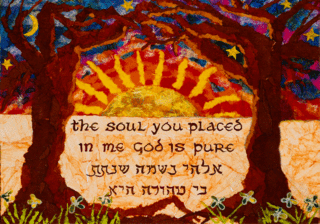 This is the second post in a series of short meditations on morning prayers.(See Part 1: Gratitude.)
This is the second post in a series of short meditations on morning prayers.(See Part 1: Gratitude.)
When I asked colleagues for their suggestions of morning prayers which start the day on the right foot, several of them mentioned Elohai Neshama -- "My God, the soul that You have placed within me is pure."
Sometimes I daven the full prayer, and other times I sing Rabbi Shefa Gold's one-sentence chant, but here's the whole thing (the chant is just the first six words):
אלהי נשמה שנתת בי טהורה היא. אתה בראתה אתה יצרתה נפחתה בי, ואתה משמרה בקרבי ואתה עתיד ליטלה ממני ולהחזירה בי לעתיד לבא. כל זמן שהנשמה בקרבי מודה אני לפניך, יי אלהי ולהי אבותי ואמותי, רבון כל המעשים, אדון כל הנשמות. ברוך אתה יי, המחזיר נשמות לפגרים מתים
My God, the soul You have placed within me is pure. You created it, You formed it, and You breathed it into me. You guard it while it is within me; some day it will return to You, and You will restore it to me in a time beyond time. As long as my soul is within me, I will thank You, my God and God of my ancestors, Source of all creation, Sovereign of all souls. Blessed are You, Adonai, Who restores the soul to the body.
(The version of this prayer which appears in Mishkan Tfilah, the Reform movement's siddur, leaves out the line about the soul returning to God and being restored to me in a time beyond time. You can see their version on a beautiful two-page spread here: Elohai Neshama in Mishkan Tfilah [pdf].)
I like Elohai Neshama. It reminds me that no matter what mistakes I made yesterday, I wake today to a soul which is pure. It reminds me that my soul is created anew each day by God and breathed into me for the duration of this lifetime, and that someday my soul will return to its ineffable Source.
But it's not a prayer that's become integral to my daily practice, unlike the blessing for gratitude and the blessing for my body. Maybe that's because I've never needed it in the same way that I need the other two. I've never struggled to believe that my soul is pure, whole, and holy -- at least, not yet.
That said, I gladly sing this prayer when I reach its place in the morning service. I think there is something radical about asserting that the soul is pure every day: no matter what our mistakes, no matter what burdens we are carrying, something within us is always pure and clean and clear.
Several years ago I spent some time working on a cycle of poems arising out of our daily morning prayer, some of which -- including the one I'm about to share here -- will appear in my next book of poetry, Open My Lips, due later this year from Ben Yehuda Press. Let me know if it speaks to you.
ELOHAI NESHAMA
My God, my
own: my soul
that You have given me
is pure, clear
like mikveh waters
the spark
which makes me more
than automated clay,
than cells sprouting cells
is holy
neshama: feminine
no matter whose,
women and men
and those blessed
in-between
what's gendered
female is what
creates: this
drop of divine
breath that breathes in us
let what I create
in the world, my God,
be as pure
as Your breath
in me
Related:
Morning blessing poem cycle, 2012 (a reprint from 2004)
Morning blessings for body and soul, 2007
Image source: ArtKetubah.com.

June 11, 2015
Prayers for the morning, part 3: Body
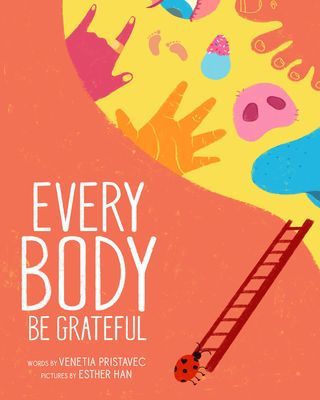 This is the third post in a series of short meditations on morning prayers. (See Part 1: Gratitude and Part 2: Soul.)
This is the third post in a series of short meditations on morning prayers. (See Part 1: Gratitude and Part 2: Soul.)
I always say that my favorite prayer is modah ani, the blessing for gratitude. And it is. But the asher yatzar, the blessing for the body, is a close second:
בָּרוּךְ אַתָּה יְיָ אֱלֹהֵינוּ מֶלֶךְ הָעוֹלָם, אֲשֶׁר יָצַר אֶת הָאָדָם בְּחָכְמָה, וּבָרָא בוֹ נְקָבִים נְקָבִים, חֲלוּלִים חֲלוּלִים, גָלוּי וְיָדוּעַ לִפְנֵי כִסֵּא כְבוֹדֶךָ שֶאִם יִפָּתֵחַ אֶחָד מֵהֶם, אוֹ יִסָּתֵם אֶחָד מֵהֶם, אִי אֶפְשַׁר לְהִתְקַיֵים וְלַעֲמוֹד לְפָנֶיךָ: בָּרוּךְ אַתָּה יְיָ, רוֹפֵא כָל בָּשָׂר, וּמַפְלִיא לַעֲשׂוֹת:
Blessed are You, Adonai our God
Who forms the human body with wisdom
And creates within it a miraculous combination
Of organs and arteries, tissues and sinews.
It is known before Your throne of glory
That if one of these were to be open where it should be closed
Or closed where it should be open
We would not be able to stand before you and offer praises.
Blessed are You, Adonai, creator of embodied miracles!
"Organs and arteries, tissues and sinews" is a creative translation which I think I first encountered in Reb Jeff's homegrown siddur; the Hebrew literally says "ducts and tubes," hinting at flutes, meaning something like "openings and closings" -- e.g. the organs and veins and ducts in our bodies.
Some people call this "the bathroom blessing," because these are the words traditionally recited after (washing the hands after the act of) elimination. I love the fact that we have a blessing which reminds us not to take the regular functioning of our bodies for granted. (It also appears in daily liturgy.)
When I had my strokes back in 2006, my relationship with this blessing shifted radically. It's one thing to say, in the abstract, that in order for me to be present before God and pray I need a body which will keep me alive in order to do so. But the strokes brought that reality home in a new way.
"It is known...that if one of these were to be...closed where it should be open" -- if, for instance, a blood clot found its way again to my brain -- I might not be able to be here in relationship with God. I might not "be here" anymore at all. I try to remember that my body is a miracle, every single day.
Rabba Emily Aviva Kapor has written a beautiful variation on Asher Yatzar which takes into account how the classical prayer can be problematic, in its unconscious ableism and in how it can erase the experience of trans* folks who struggle with the assertion that God made their bodies "with wisdom."
Whether I daven the traditional text or Rabba Emily Aviva's variation, this prayer feels incredibly important to me. Maybe because it's easy for me as a woman to knock my body, and this prayer reminds me instead to thank God for the miracle of this body which allows me to exist in the world.
And my mashpi'ah reminds me that this prayer teaches also that we need to be aware of openings and closings on other levels. In emotional life there can be blocks which need clearing. In intellectual life. In spiritual life. Channels need to be open in all four worlds of body, heart, mind, and spirit.
What in your life is closed which you yearn to open, or opened which you wish you could safely close? Does this blessing speak to you and to your sense of your lived experience in your body? What are the sine quibus non, the things or conditions without which you could not be present and offer praise?
Related:
Sanctifying the body, 2005
Morning blessings for body and soul, 2007
On bathrooms, blessings, and a learning experience, 2012
Daily love song to my body, 2013
Every body is a reflection of God, 2013
Gratitude for my body, 2015
Image: the cover of this children's book.

Prayers for the morning, part 1: Gratitude
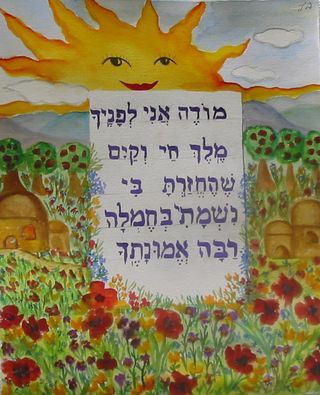 After I posted about afternoon prayer recently, my mom wrote back to tell me that she liked the post and the prayer, and to ask whether I could share a brief morning prayer, too. It seemed likely to me that if she were interested, someone else might be too. My very favorite prayer is a morning prayer:
After I posted about afternoon prayer recently, my mom wrote back to tell me that she liked the post and the prayer, and to ask whether I could share a brief morning prayer, too. It seemed likely to me that if she were interested, someone else might be too. My very favorite prayer is a morning prayer:
מודה אני לפניך
מלך חי וקים
שהחזרת בי נשמתי בחמלה,
רבה אמונתך.
Modah ani l'fanecha,
melech chai v'kayam,
shehchezarta bi nishmati b'chemla,
rabbah emunatecha!
I am grateful before You,
Living and enduring God --
With mercy You have restored my soul to me.
Great is Your faithfulness!
It's only one sentence, but it holds so much. "I am grateful" -- I begin the day with gratitude. "Before You" -- the reminder that even if I am feeling isolated, I am not alone. "Living and enduring God" -- I assert that I am speaking to the force which enlivens all things, and which endures forever.
"You have mercifully restored my soul to me" -- that phrase depends on the assumption that while we sleep, our souls are in God's keeping. While we sleep, our souls are sheltered and cared-for by God. When we wake, our souls return to our bodies. This prayer reminds me to notice that I am alive!
"Great is Your faithfulness"-- sometimes the last clause is my favorite part. One might imagine that emunah, faith, is something we are meant to have in God. But this prayer asserts exactly the opposite. God has faith in us. I begin my day by reminding myself that someone -- some One -- believes in me.
I put out this question to a handful of rabbi friends on Twitter, curious to know what short morning prayer they would highlight. They suggested elohai neshama, which reminds us that we wake each day with pure souls, and asher yatzar, which reminds us that our bodies are miracles.
Stay tuned for a little bit more about each of those. Meanwhile, I'd love to know (via comments on this post, or via Twitter conversation -- I'm @velveteenrabbi) your favorite morning prayer(s) and/or gratitude practice(s). What have you found to work for you, as the best way to begin your day?
Related:
Melodies for gratitude , 2011;
On gratitude and thanks, 2013;
Privilege, prayer, parenthood, 2014.
Image source: Esther Zibell.

June 10, 2015
Beautiful
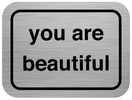 Has anyone told you today that you are beautiful?
Has anyone told you today that you are beautiful?
Not because of what you're wearing. Not because they like your jewelry or your tie, though maybe they do. But your clothes aren't the point. Not now.
Not because they want something from you and are trying to butter you up. Not because you did something for them and they're trying to thank you. Just because it's true.
No?
I'll tell you, then. You are beautiful.
There is beauty in your eyes. When you let your neshama, your soul, shine through -- it takes my breath away. There's beauty in your hands -- in everything they do, have done, will do in the world.
There is such beauty in what makes you you. I know that the world we live in doesn't always feel like a safe place to let your light shine. I know that you don't always feel beautiful. But believe me: you are.
I wish I could make your life endlessly sweet. I wish I could smooth the rough edges, gentle away the sorrow, remove suffering from your path. I can't, because those things aren't given to me to do.
But I can tell you that you are beautiful, and that you are precious, and that I cannot fathom that a loving God put you on this earth to suffer, and that I want every good thing for you. Every single one.
I can tell you these things because I have been blessed to hear them myself. And I know that if they are true for me, then they are true not only for me. And if I needed to hear them, maybe you do, too.
I know that we are all reflections of God's beauty. I don't always see that beauty in myself, but when I look at the people I love most in the world, their beauty is more than I can describe in words.
I look at the people I love, and I want their lives to be paved with kindness, with gentle encounters and generous conversations, with an endless outpouring of love, because they deserve every good thing.
I believe that God sees each of us that way. The heart-overflowing limitless endless love that I feel for the people I love most in the world -- God feels that way toward every one of us. Can you imagine?
Think of the person you love most. How beautiful they are to you, because you see them through the eyes of love. Now imagine yourself, seen through the eyes of someone who loves you that intensely.
Because some One does. Even if you feel completely alone in the world. Even if life right now is hard. You are beautiful in those eyes. And you are beautiful in mine. You are beautiful because you are you.
The image illustrating this post comes from the folks at you-are-beautiful.com. It's one of the two bumper stickers on my car.

June 9, 2015
Afternoon offering
I've trained myself to begin and end each day with what my ALEPH teachers would call prayerful consciousness. I begin the day with modah ani, sung silently in my head if not aloud; I end the day with the shema and blessing those who are dear to me. Even though I often don't manage to make the time to daven (pray) the whole morning and evening liturgy, I feel good that I have inculcated these practices deeply enough that they persist without me having to remind myself to do them.
What I don't have is any kind of consistent practice for afternoon's mincha time. (This is not new.) Lately I've been spending time with a one-paragraph meditation written by Rabbi Edward Feld, which I long ago copied from Kol HaNeshamah, the Reconstructionist siddur. It's an abridged version of the middle of the weekday amidah, the standing prayer which is central to every service. The amidah is our time to stand before God, whatever we understand that to mean -- God far above or deep within.
On Shabbat we offer seven amidah blessings; the weekday version contains 19 blessings. (Why longer on weekdays? Because traditionally one doesn't ask for anything on Shabbat, which is meant to be a special time out of time. On weekdays, we can make requests.) The weekday amidah has some heft to it, but the tradition makes allowances for those who are traveling and can't manage the whole thing. This abridging, replacing the middle 13 blessings with one, is one of our traditional "workarounds."
Anyway, here's the abbreviation of those middle 13 requests with which I've been spending time lately:
פקח עיני לראות בטוב יצרך
והפך דעתי לדעתך ורצוני לרצונך.
יהיו כל מעשי כקרבן רצוי לפניך
ותסלח לכל פשעי.
תנ לי לראות אורך בכל פגישותי
ורפא נא מכאובות לבי.
כי אתה שומע תפלת כל פה.
ברוך אתה יה שומע תפלה.
Open my eye, that it may look upon the goodness of Your plan,
and turn my knowledge into knowledge of your ways, my will into Your will.
May all that I do be like an offering received into Your presence,
and may You forgive me all I have done wrong.
Enable me to see Your light in all whom I encounter,
and please heal the pain within my heart.
For You are one Who listens to the prayer of all who speak.
Blessed are You, Eternal One, Who hears all prayer.
I know that Rabbi Feld did not intend for this blessing to replace the weekday amidah altogether, but on days when my time is tight, sometimes this is my whole afternoon amidah. (I keep it printed out beside my desk so I can grab it as needed in the pause between meetings.) Even when it's all I manage to do, it does shift the tenor of my heart a little bit. I think it helps me to bring more awareness and spaciousness to whatever meetings or obligations or teaching might be coming next.
I love how this blessing presumes that if my eyes are open, they will see God's goodness. There is goodness in the world; I need only to open myself to it, and I will recognize that it is there. I love the line about wanting my actions to be an an offering -- to me, that hints at the name of the afternoon service, mincha, which means offering, as in the afternoon offering once made at the Temple in Jerusalem. I love the intention of seeing God's light in all whom I meet as I go about my day.
And I love that there is a request for healing. Sometimes there is an ache sitting heavy on my heart. Sometimes I am sad about something, or worried about someone, or wishing I could make life sweeter for someone I love. And sometimes it feels as though my sorrow, or my worry, or my yearning is a block to my ability to daven. But this prayer reminds me otherwise. My yearnings themselves can feed my prayer; can become my prayer. They are the holiest thing I can offer up on the altar of my heart.

June 4, 2015
You make the seasons change...
 At this time of year, one of the things I most love about where we live is watching the shifting shades of green. This year the trees leafed out while we were in Texas visiting family. When we left the branches were still bare. When we returned, everything was that extraordinary chartreuse of brand-new chlorophyll, so bright it's almost fluorescent. Baby green with a hint of neon behind it.
At this time of year, one of the things I most love about where we live is watching the shifting shades of green. This year the trees leafed out while we were in Texas visiting family. When we left the branches were still bare. When we returned, everything was that extraordinary chartreuse of brand-new chlorophyll, so bright it's almost fluorescent. Baby green with a hint of neon behind it.
Only a few weeks have passed since that trip, but already the landscape has shifted. Most of the trees are wreathed in mature green now, a green that feels more substantial. Often the leaves are larger, too; they've reached what I think of as their summer size. I forget, every winter, what it looks like when trees explode with leaves. They go from sticks to puffballs, from stark lines to rustling softness.
I catch my thoughts snagging on thorns: these leaves are so beautiful, I'm going to miss them when they're gone. Or I notice the long low light of early-summer evening, and even as I'm reveling in this moment the whisper comes: someday the light will wane and the days will be short. Where did that come from? Why can't I be in this moment, instead of worrying about losses I might someday feel?
The leaves have only just grown; the summer's barely begun; the light is still increasing. Why am I already thinking about what it will be like to lose them? But this is what the mind does: it tells stories about things which haven't yet come to pass. Sometimes they are sweet stories, as when I anticipate seeing a loved one. Sometimes they are stories marinated in old fear: what you have will go away.
When I notice my mind spiraling down those old fearful pathways, I try to pause and take a deep breath, and on the exhale, to let those thoughts go. The thoughts happen. It's okay; there's nothing wrong with having them; and I don't need to become attached to them. I can notice them, name them, and then let them slip away like goldfish darting beneath the surface of a pond.
One of my favorite evening prayers is the ma'ariv aravim, the prayer which blesses God Who "evens out the evenings." The word comes from a root which means to mix; in this context it seems to hint at mixing afternoon with night. "You roll back light before dark, and dark before light," the prayer says (in translation). Light and dark take turns, and our task is to notice and sanctify the changes.
"You make the seasons change and order the stars in their appointed paths across heaven's dome," that prayer reminds us. The changes in season are part of the divine design; they are built into the world as we know it. In order for the season to hold still the earth would have to stop spinning -- catastrophe. God is the One Who cycles us through change, and change doesn't have to mean loss.
The Hebrew word for year, shanah, relates to the word for change, shinui. The year is made up of change, and God is the very process of change -- God Who describes God's-self, at the burning bush, as Ehyeh asher Ehyeh, "I Am Becoming Who I Am Becoming." The trick is to trust the hand of God at work. Change is how the world is renewed. Our task is to embrace that, and not to be afraid.

June 2, 2015
Eldad, Medad, and Reb Zalman's tisch
 In the verses we just read from Beha’alot’kha, God takes the spirit which was upon Moses and places it on seventy elders, and all of them begin to prophesy. Then two other men, Eldad and Medad, also begin to prophesy. Joshua, who will be Moses' successor, urges Moses to stop them. And Moses says, "Are you upset on my account? Would that all of God's people were prophets!"
In the verses we just read from Beha’alot’kha, God takes the spirit which was upon Moses and places it on seventy elders, and all of them begin to prophesy. Then two other men, Eldad and Medad, also begin to prophesy. Joshua, who will be Moses' successor, urges Moses to stop them. And Moses says, "Are you upset on my account? Would that all of God's people were prophets!"
When we think of the English term "prophecy," we think of foretelling the future. But that's not what a Biblical prophet did. In the Biblical understanding, a prophet is someone who speaks for God. The great rabbi and scholar Abraham Joshua Heschel teaches that it was the prophet's job to offer a God's-eye view on the world.
The Biblical prophets spoke on God's behalf: sometimes words of love, sometimes words of caution and judgement. The prophets bequeathed to us a treasury of writings which call us toward a world redeemed.
In the Jewish understanding, prophecy isn't about predicting the future. Prophecy seems to mean something like opening ourselves to that Voice from beyond which exhorts us to be better than we think we know how to be.
In this morning's verses, I hear Joshua's anxiety. His boss Moses was the only one who had a direct line to God, and now suddenly all of these people are speaking on God's behalf -- even people who weren't invited. The familiar structure of authority is at risk of breaking down!
I can empathize with Joshua's fear. And I love Moses' response: oh, dear one, are you jealous on my account? You think I mind having other people connecting with God? On the contrary -- I wish everyone had a clear channel through which divine spirit and wisdom could flow.
Tradition teaches that never again will there arise a prophet as great as Moshe. Today's verses offer a glimpse of his greatness because they show us someone who was not threatened by others being uplifted too. Moses knew that connection with God is not zero-sum, and that other people opening their hearts to divine wisdom didn't diminish his ability to do the same.
One of my favorite stories about my teacher Reb Zalman z"l is about how he used to teach at his Shabbos tisch. "Tisch" is Yiddish for "table;" it means a celebratory gathering where students gather to imbibe wisdom from their teacher, usually accompanied by singing niggunim and toasting l'chaim! Following in the footsteps of his Hasidic forebears, Reb Zalman would gather his hasidim around the table, and offer his unique and beautiful Torah, and his students would be nourished by his wisdom.
And then he would do something which his forebears didn't do. He would invite everyone to rise, and to move one chair to the left. Now someone else was sitting in the "rebbe chair" -- the big cushy seat with the armrests at the head of the table from which the rebbe was supposed to offer his teachings. And he would say, "Look inside for the Rebbe-Spark within you -- and teach from there."
And then they would do it again, and again, until everyone at the table had had the opportunity to be the teacher, the giver of wisdom, an open channel for divine grace. Everyone got to sit in the rebbe chair, both literally and metaphorically.
It was important to him that all of us learn that "rebbe" is a function, a role, into which we too can step. That we too have wisdom to give over. That we too can open our hearts to something beyond ourselves and learn to trust that the wisdom which will flow through us will be the right wisdom for this moment. That all of the power shouldn't reside in one person, because that isn't good for the rest of us -- and it's not good for the one person in power, either.
"Would that all of God's people were prophets." Would that we all felt safe enough to open our hearts and minds to divine inspiration. Would that we all trusted our intuition enough to discern when the voice urging us on is a holy one. Kein yehi ratzon -- may it be so.
This is the d'var Torah which I offered yesterday morning at my shul. (Cross-posted to my From the Rabbi blog.)
I've heard the story of Reb Zalman's tisch many times. If you'd like to hear about it from someone who was there, I commend to you Reb Arthur's post Reb Zalman: His Light is Buried Like A Seed -- To Sprout.

June 1, 2015
Sidewalk havdalah
 There are so many moments which stand out from me from this weekend in New York city, the first stop on the ALEPH / Jewish Renewal listening tour. Moments from our davenen at Romemu. Moments from our meals together. Moments from our amazing afternoon and evening and morning of conversations about Jewish Renewal's history, its present, and our hopes for its future.
There are so many moments which stand out from me from this weekend in New York city, the first stop on the ALEPH / Jewish Renewal listening tour. Moments from our davenen at Romemu. Moments from our meals together. Moments from our amazing afternoon and evening and morning of conversations about Jewish Renewal's history, its present, and our hopes for its future.
But right now the moment which is foremost in my consciousness is the experience of making havdalah, the ritual which separates between Shabbat and week, at a little Italian restaurant a short walk from our hotel. We were sitting at a table at the liminal edge between indoors and outdoors. We had enjoyed much terrific conversation and most of a bottle of white wine. And then it came time.
I had brought a havdalah set from home, but it was in the hotel room. So we made do. David sang over his glass of pinot grigio. Shoshanna provided a vial of essential oils for our besamim, the fragrant spices which revive the soul so that the departing Shabbat doesn't break our hearts. We sang quietly. We blessed the table's little votive candle and noted its light reflected in our fingernails.
 We blessed the One Who makes separations: between holy time and ordinary time, between Shabbat and the six days of the workweek. We blessed the One Who separates -- and bridges -- all of our distinctions. The One Who transcends and includes. And we poured a drop of wine onto our votive to extinguish it, and sang a good week, a week of peace, may gladness reign and joy increase!
We blessed the One Who makes separations: between holy time and ordinary time, between Shabbat and the six days of the workweek. We blessed the One Who separates -- and bridges -- all of our distinctions. The One Who transcends and includes. And we poured a drop of wine onto our votive to extinguish it, and sang a good week, a week of peace, may gladness reign and joy increase!
I wonder what the people at the other tables thought of us. Of course, this was New York, and the Upper West Side to boot; many of them were probably Jewish. Anyway, no one seemed fazed. (I suppose it's harder than this to faze New Yorkers.) I wonder what the waitstaff thought we were doing. Had anyone ever made havdalah at this restaurant, at this place on the edge of the sidewalk before?
The moment could not have felt more liminal. There we were, on the threshold between Shabbat and week; between indoors and outdoors; between Jewish Renewal's rich past and the wide-open wonder of our future. This weekend we began a journey of deep listening and learning, a kind of intellectual and spiritual gleaning appropriate to this shmitta (Sabbatical) year. We are poised on the cusp, honoring and blessing our past and opening our hearts to the work which we know lies ahead.
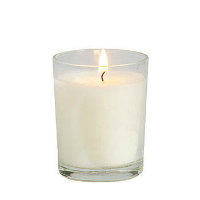 As we sang there were tears in my eyes. There is something incomparably precious about experiencing Shabbat among my ALEPH hevre, my beloved colleague-friends. Bidding Shabbat farewell is always bittersweet, and it's more so when I have spent it with loved ones who I don't see often enough. But havdalah reminds me to open my heart and not to be afraid of the new week on its way.
As we sang there were tears in my eyes. There is something incomparably precious about experiencing Shabbat among my ALEPH hevre, my beloved colleague-friends. Bidding Shabbat farewell is always bittersweet, and it's more so when I have spent it with loved ones who I don't see often enough. But havdalah reminds me to open my heart and not to be afraid of the new week on its way.
One of the things I loved about the ALEPH rabbinic ordination program is how the low-residency format encouraged me (even obligated me) to integrate my spiritual life with my "ordinary life." ALEPH life was always an oscillation: between holy time and regular time; time with my colleagues, and time with my home community; time immersed in Torah, and time immersed in other things.
It was good practice for moments like this one: pausing in our conversation because it was time to sanctify this moment of Shabbat giving way to week, and then returning to our conversation with our hearts opened and our souls enlivened by the few moments of intention, of prayer and song.

May 28, 2015
The ALEPH / Jewish Renewal Listening Tour
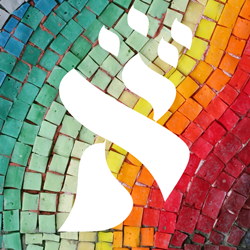 One of the first ideas which came to David and me as we began preparing to take on the role of co-chairs of ALEPH (see A new chapter in my life with Jewish Renewal) was a listening tour.
One of the first ideas which came to David and me as we began preparing to take on the role of co-chairs of ALEPH (see A new chapter in my life with Jewish Renewal) was a listening tour.
We want to spend our first year as co-chairs doing a lot of listening: to people who are a part of ALEPH now; to people who have been part of ALEPH far longer than we have; to people who were part of ALEPH but have moved into other circles; to people who are not yet part of ALEPH but are nevertheless doing the work of renewing Judaism and who might become part of our extended hevre (fellowship) in time.
We've developed some big questions which we hope will guide and inform the coming year. Among them are: What do you most cherish about Renewal that you hope the future will carry forward? What would you jettison or change? What new focus would you recommend in coming years? How can we cultivate a shared pan-Renewal "ecosystem" for continued spiritual and organizational innovation?
We're going to be listening, and cultivating responses, in a variety of ways: collecting stories and hopes asynchronously (which is to say: you can send us your reflections and your answers to our big questions in your own time, in written form), scheduling video chats with people who want to talk about Jewish Renewal's history and its future, and meeting with people around the country at a variety of different gatherings over the year to come.
We just shared a long post -- containing information about the ALEPH / Jewish Renewal Listening Tour, our list of Big Questions, and three ways that You (Yes, You!) Can Participate -- here: A Listening Tour, Big Questions, and the Next Turning of Jewish Renewal. I hope you'll go and read... and if you have thoughts in response to our questions, I hope you'll share those with us too.

May 27, 2015
Attuned to the rhythm
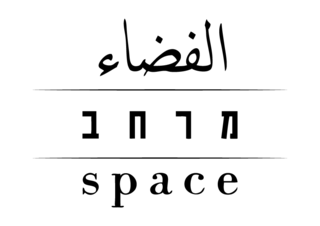 There's a rhythm to the Jewish year. Our major seasons of spiritual work and celebration come in the fall and in the spring, and after each of those seasons comes a lull. It's as though the year were set up to give us spiritual downtime, an opportunity to integrate whatever learning or insight the festivals enabled us to attain. Was that the intention of our sages? Who knows -- but it works well for me.
There's a rhythm to the Jewish year. Our major seasons of spiritual work and celebration come in the fall and in the spring, and after each of those seasons comes a lull. It's as though the year were set up to give us spiritual downtime, an opportunity to integrate whatever learning or insight the festivals enabled us to attain. Was that the intention of our sages? Who knows -- but it works well for me.
In late winter I begin counting down the time until Pesach. I love Pesach; I love the coming spring; I love the story of liberation. Then there are the seven weeks of the Omer, a journey of cultivating different qualities within myself as I prepare to open my eyes and my heart to Torah anew at Shavuot. Shavuot will come whether or not I am ready, but I want to feel ready! Then comes Shavuot...
...and after Shavuot comes the downtime. (Thank God!) I'm grateful for this lull. I don't know that I could sustain the pace of the last few months, not just in terms of holiday practices but in terms of spiritual work, too. Fortunately, the summer is relatively quiet on the Jewish calendar. Sure, there are a few things here and there, but nothing of the magnitude of the spiritual journey we've just taken.
In late summer I'll begin counting down the time until the Days of Awe. I love the Days of Awe; I love the coming fall; I love the chance to begin again. There are seven weeks between Tisha b'Av and Rosh Hashanah, a journey of repentance and return. Or: there are 40 days between the start of Elul and Yom Kippur, an intense corridor of teshuvah. What needs repair? Who is God calling me to be?...
...and after Sukkot comes the downtime. (Thank God!) I know I will be grateful for that lull when it comes, too. Fortunately, the winter is relatively quiet on the Jewish calendar. Sure, there are a few things here and there, but nothing of the magnitude of the spiritual journey of the High Holidays and Sukkot. The calendar provides time to be "on" and time to be "off." There is an ebb and flow.
Every year is a slow and stately dance. We turn inward and focus on improving ourselves; we turn outward and focus on improving the world. We plant, and we harvest, and we lie fallow, and we prepare to plant again -- if not literal seeds, then metaphysical ones in the soil of the heart. One season leads to the next, one holiday leads to the next, and every period of activity is balanced by stillness.
And the stillness is part of the pattern. The stillness, too, is holy. There are beautiful Hasidic teachings about how the stillness which follows an intensive holiday season is itself part of the season. It's the white space which cradles and contains the letters of the Torah. Without that white space, there would be no Torah. Without these seasons of quiet, we would be unable to experience the holiday cycle.
Whenever I am blessed to visit the ocean I am soothed by the endless rhythms of the waves. Each wave rolls in and flows out. The tides rise and then recede. Those who are attuned to the rhythms and patterns of the sea know when the tides will be high and when they will be low. I want to be as attuned to the rhythms of the Jewish year as sailors and fishermen are attuned to the rhythms of the sea.
If you enjoyed this post, you might also dig my 2009 post The year as spiritual practice.
The image illustrating this post comes from a multilingual journal called מרחב الفضاء space, published in Tel Aviv.

Rachel Barenblat's Blog
- Rachel Barenblat's profile
- 6 followers



